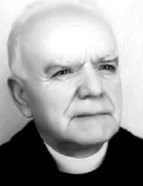

For over 30 years, he served as the national assistant and diocesan on a variety of organisations within the Acção Católica Portuguesa [Portuguese Catholic Action] (established in 1933), namely the Juventude and Liga Universitária Católica Feminina [Catholic Youth and Women's University League] (LUCF), the Liga Estudantil Católica Feminina [Catholic Women's Student League] (LECF) and Assistant Diocesan of the Juventude Universitária Católica [Catholic University Youth] (JUC).
His initial publications (1920-22) were poems and short stories published in the Mensageiro do Coração de Jesus [Messenger of the Sacred Heart] . At the age of 31 (March and April 1927), he published his first historical work in Brotéria: "O Infante Santo e a possibilidade do seu culto canónico" [The Holy Child and the Possibility of His Canonical Cult].
In the course of his historical research and responsibilities as a member of a variety of scientific institutions, he participated in numerous specialist meetings, with most of his speeches subsequently published. Among his early articles in Brotéria is a brief apologetic study, highly relevant for the time (1929), titled: “Preconceitos contra as Ordens Religiosas em Portugal. Meios de os combater” [Prejudice against Religious Orders in Portugal. How to fight them]. Regarding the relationship between the Church and the press in general (not just the Catholic press), he delivered a lecture at the Associação dos Jornalistas e Homens de Letras do Porto [Association of Journalists and Men of Letters of Porto] (Dec. 1933) which he later published in Brotéria (1934) under the title “A Igreja e a Imprensa” [The Church and the Press]. In Brotéria , he closely reported on contemporary cultural movements, such as the "Pax Romana" Congress and developments within two academic groups and Cidec (1946), as well as the Catholic renewal movements in Germany, France, and England. He took a stand on the preservation of the Church’s artistic heritage (1931), aligning with the initiatives promoted by the Holy See at the time. He also commented on the education reform at the Faculdade de Letras [Faculty of Arts and Humanities] (1957), explained the foundation of UNESCO (1948), and reported on the creation of the General Studies of Angola and Mozambique (1963).
This work is financed by national funds through FCT - Foundation for Science and Technology, I.P, in the scope of the projects UIDB/04311/2020 and UIDP/04311/2020.
